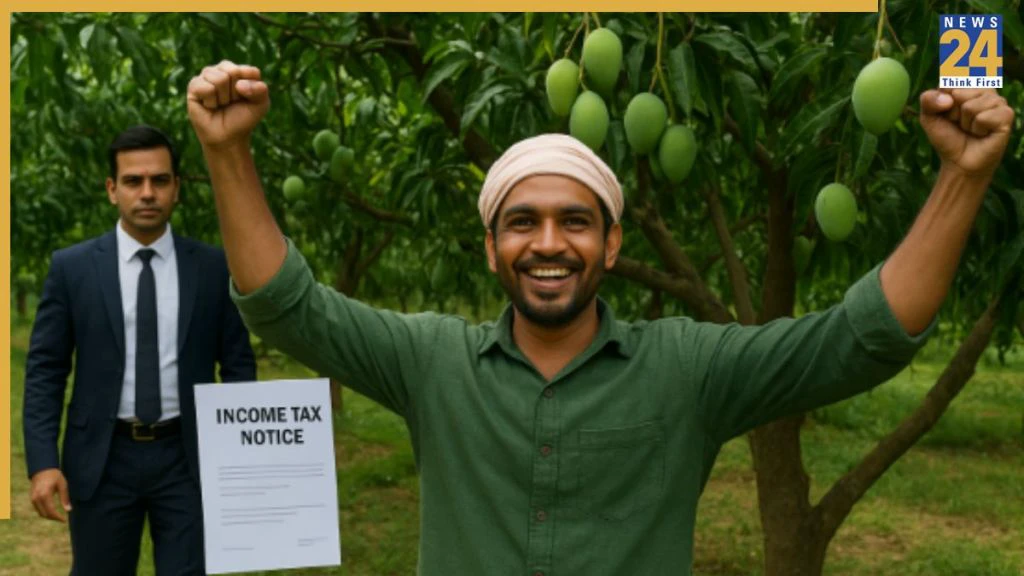The Income Tax Appellate Tribunal (ITAT) Bangalore bench upheld the affidavit of a landowner and dismissed a tax notice issued by a tax officer who had prepared it after being influenced by online articles.
Pertaining to the case, landowner Kanana cultivated mangoes on 22.24 acres of land along with a few other fruits. He declared his income tax for AY 2020-21 on February 1, 2021, with a total income of Rs 48 lakh (48,58,140).
Later, the Income Tax Department flagged his case for scrutiny for large agricultural income and agricultural income under CASS.
The Income Tax Department issued notices to Kanana under Sections 143(2) and 142(1). The sale and purchase deeds revealed that Kanana was the owner of 22.24 acres of land, while the remaining land belonged to his sons.
Kanana was carrying out agricultural activity on 23.78 acres of agricultural land in Andhra Pradesh’s Chittoor district. His gross earnings from the sale of mangoes and other fruits during AY 2021 were Rs 1.85 crore (1,85,63,174).
The tax officer handed over the case to the Income Tax Verification Unit via the insight portal for physical verification of the agricultural land. The officer wanted to check whether any agricultural activities had been conducted on the land located in Chittoor district.
The verification team reverted to the officer, confirming that agricultural activities had indeed taken place. They reported that the rate was Rs 7,000 to Rs 8,000 per tonne in FY 2019-20 and the production of mangoes was 3 to 4 tonnes per acre.
The verification unit estimated the total turnover to be Rs 9,60,000 per acre.
The assessing officer took an average price of Rs 45,000 per ton, estimating a turnover of Rs 43.2 lakh. After applying 50% expenses, the officer calculated agricultural income at Rs 21.6 lakh, and the remaining Rs 1.2 crore was treated as unexplained cash credit under Section 68.
A show-cause notice was served to Kanana. Upset with the notice, Kanana’s chartered accountant approached the Commissioner of Appeals (CIT-A).
The CIT(A) noted from the submissions that the price of the mango crop varies from year to year and also depends on the variety. The CIT(A) said it was not possible to assess income from a mango crop without complete details of the produce and its value during that period. Accordingly, the CIT(A) deleted the addition made by the AO.
The Income Tax Department then moved to the ITAT Bangalore.
The tribunal found that the assessing officer did not meet the contractors, seek confirmation, or produce any contrary evidence. Instead, the officer relied on generic information reports and sourced market rates from the internet, which did not have any factual verification of the assessee’s yield, crop variety, or price realisations.
ET cited the ITAT Bangalore observation as saying: “The verification unit submitted a report and from the internet, the AO estimated a total turnover of Rs 43,20,000 and 50% of the receipts have been treated as expenditure of Rs 21,60,000.”
ET mentioned that ITAT Bangalore said in its verdict: “The case law relied on by the learned Counsel of the Hon’ble Apex Court in the case of Mehta Parikh and Co., cited supra, supports the case of the assessee. Accordingly, we do not find any infirmity in the order of the learned CIT(A) and we dismiss the appeal of the Revenue. In the result, the appeal filed by the Revenue is dismissed.”
